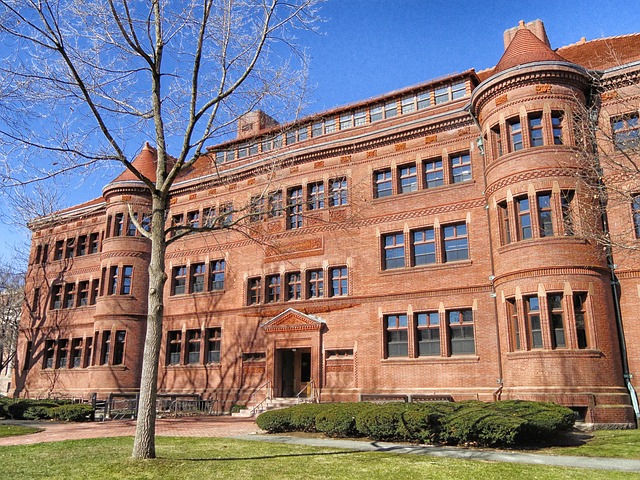
What’s a good TOEFL score for Harvard? Is there a TOEFL Harvard minimum you must meet in order to qualify for admission as an undergraduate or graduate student? Who has to take the TOEFL?
In this guide, we go over the Harvard TOEFL requirement for each major department and look at how this minimum score varies depending on the program you’re applying to. We then give you expert tips on what to do if you’re struggling to meet the Harvard TOEFL score threshold.
Who Needs to Take the TOEFL for Harvard?
First off, which applicants actually need to take the TOEFL? The general rule is that if your native language is English, you do not have to take the TOEFL.
At Havard, whether you must take the TOEFL depends on two main factors:
- Your country of citizenship
- Your class level (undergraduate or graduate student)
If you’re a US citizen or permanent resident, you will not need to take the TOEFL. If you’re an international applicant from a major English-speaking country such as Canada, the UK, Australia, or New Zealand, you also shouldn’t need to take the TOEFL.
However, if you’re an international applicant from a non-English-speaking country, you may need to take the TOEFL. I say “may” because not all programs at Harvard require applicants to submit English-proficiency test scores (though most programs will consider them if submitted).
So how does the Harvard TOEFL requirement differ for undergraduate and graduate applicants? Here is a brief rundown of the differences, which we’ll explain more in the next two sections:
By the way: we have built the world's best online TOEFL course. Get online practice (TPO-sytle!) and individual grading and feedback on Speaking and Writing.
To be fair, it's possible to get a good TOEFL score studying alone. But PrepScholar is the world's most effective TOEFL course if you are worried about the TOEFL and are struggling to improve your score.
Learn how you can improve your TOEFL score by 15 points today.
- If you are applying to be an undergraduate and are from a non-English-speaking country, you do not have to (but may) take the TOEFL.
- If you are applying to be a graduate student and are from a non-English-speaking country, you will most likely need to take the TOEFL. (However, there are normally exceptions for those who have received a bachelor’s degree from an English-speaking institution.) You may also need to meet a certain score threshold in order to qualify for admission.
Now, let’s take a closer look at the Harvard TOEFL score requirements for undergraduate and graduate applicants.
Harvard TOEFL Requirement for Undergraduate Applicants
The TOEFL is not required for undergraduate applicants to Harvard; however, Harvard will accept TOEFL scores if you choose to submit them.
Because there is no undergraduate TOEFL requirement, Harvard does not have a minimum required or recommended TOEFL score for undergraduate applicants.
Nonetheless, all international applicants whose first language is not English must have a strong command of the language in order to gain acceptance. Harvard is one of the most well-known Ivy League schools, with an undergraduate acceptance rate of just 6 percent. Therefore, if you plan to take the TOEFL, aim for a score in at least the 100s.
Although the TOEFL is optional, all international applicants, as well as domestic applicants, must submit SAT/ACT scores and (typically) scores from two SAT subject tests. To learn more about what SAT/ACT score you’ll need for admission to Harvard, go to Harvard’s Admission Requirements page.

Harvard TOEFL Requirement for Graduate Applicants
Though Harvard doesn’t require the TOEFL for undergraduate applicants, most of its graduate programs require applicants to submit TOEFL (or IELTS) scores with their applications.
Graduate TOEFL requirements can vary depending on the school/department and program. At Harvard, many schools have minimum TOEFL score requirements that apply to all programs in that school.
However, some programs may require TOEFL scores that are slightly higher than their school minimums. Thus, you should always check directly with your program to see what its exact TOEFL requirements are.
The following chart summarizes the TOEFL requirements for some of the major schools and programs at Harvard:
| School / Program | Minimum Required TOEFL Score |
| Graduate School of Arts and Sciences | 80 iBT |
| Anthropology PhD | 80 iBT |
| Chemistry and Chemical Biology PhD | 80 iBT |
| Psychology PhD | 80 iBT |
| Harvard Business School | — |
| MBA program | 109 iBT (recommended) |
| Doctoral program | 109 iBT (recommended) |
| Graduate School of Design | 92 iBT with 23 on all sections 104 iBT with 26 on all sections (recommended) |
| Harvard Divinity School | — |
| MDiv, MTS, Ho Scholars, and Special Students programs | 100 iBT / 600 PBT |
| ThM program | 105 iBT / 620 PBT |
| Graduate School of Education | 104 iBT with 26 on all sections (recommended) |
| John A. Paulson School of Engineering and Applied Sciences | 80 iBT |
| Harvard Extension School | 100 iBT |
| Harvard Kennedy School | 100 iBT / 600 PBT |
| MPP program | iBT: 25 on all sections PBT: 58 on Reading, 59 on Listening, and 61 on Writing |
| MPA/ID, MPA, MC/MPA, and MC/MPA Edward S. Mason programs | 100 iBT / 600 PBT iBT: 25 on all sections (recommended) |
| Harvard Law School | — |
| JD program | None (TOEFL not required) |
| LLM program | 100 iBT with 25 on all sections / 600 PBT with 60 on all sections and 5.0 on TWE |
| Harvard Medical School | 100 iBT |
| T.H. Chan School of Public Health | 100 iBT / 600 PBT 23 on all sections (recommended) |
Source: Harvard.edu
In this chart for Harvard, TOEFL score requirements generally take two forms: minimum required scores and recommended scores.
Required scores are scores you must meet in order to qualify for admission. If you don’t meet these scores, your application will be rejected (unless you qualify for conditional admission).
Recommended scores are scores you don’t need to get in order to qualify for admission; however, you will have a better chance of admission if you do get them.
For Harvard, as well as for any other school, always aim to get the recommended score (over a required minimum score). Getting (or exceeding) a recommended score will make you a more competitive applicant for your program, thereby increasing your likelihood of getting accepted.

What If You Don’t Meet the Harvard TOEFL Requirement?
It’s not easy getting a high enough TOEFL score for Harvard. So what can you do if you’re having trouble meeting your goal score? Here are a few options depending on whether your score is close to or far from the Harvard TOEFL requirement.
If Your Score Is Close to the Harvard TOEFL Requirement …
- Contact your program. Ask whether they are willing to review your application despite the fact your TOEFL score is slightly lower than what’s required. If your program agrees to consider you for admission, use the time before you submit your application to strengthen other parts of it, such as your statement of purpose and CV/resume.
- See whether you qualify for conditional admission. If your program offers conditional admission, you’ll most likely need to fulfill an English-language requirement or class before you can start taking regular courses at Harvard.
- Pay for a TOEFL score review. If your program at Harvard doesn’t offer conditional admission and won’t accept lower TOEFL scores, consider getting a rescore. With this service, ETS (the maker of the TOEFL) rescores your Speaking and/or Writing sections, potentially raising your total score by 1-3 points (though it could also lower it!). A rescore is better than retaking the test as it’s cheaper and less time-consuming.
If Your Score Is Far From the Harvard TOEFL Requirement …
Your best option is to retake the TOEFL. If you do this, though, make sure you spend plenty of time honing your weaknesses and figuring out ways you can improve your score.
The more points you need to hit the Harvard TOEFL score minimum, the more hours you’ll need to study. And the more hours you need to study, the more time you should try to give yourself before test day. Generally, it’s best to set aside at least three to six months for TOEFL prep.
To figure out how many hours you’ll need to study, subtract your current TOEFL score from the TOEFL Harvard score you need for admission.
For example, if I’m applying to Harvard’s psychology program, I’ll need to score at least 80 on the TOEFL. Let’s say my current score is 76; this means I’ll need 4 points to reach my goal score of 80.
Once you’ve found this difference, use the chart below to determine (roughly) how many hours you’ll need to study for each TOEFL section:
| Section | Study Hours for 1-Point Improvement |
| Reading | 6-8 |
| Listening | 6-8 |
| Speaking | 15 |
| Writing | 6-8 |
In my example, I need to improve my total TOEFL score by 4 points to qualify for admission to Harvard’s psychology program. If I wanted to improve only my Reading and Speaking sections by 2 points each, I’d have to study at least 42 hours (because 2(6) + 2(15) = 42).
Once you have an estimated number of study hours, divide up the number of weeks you have until test day to get a rough number of hours you should study for the TOEFL per week. If I’m studying 42 hours over the course of two months, for example, I’ll need to prep a little more than five hours each week. This gives me my best chance of meeting the minimum Harvard TOEFL requirement on test day.

What’s Next?
Curious about TOEFL score requirements for other schools? Our extensive article lists more than 50 popular colleges and universities and their TOEFL score expectations.
What TOEFL score do you need for admission to Princeton (coming soon)? Columbia (coming soon)? Stanford (coming soon)? Read our guides to learn about the different TOEFL scores you need for undergraduate and graduate admission.
Ready to improve your TOEFL score by 15 points?
Download our best TOEFL Strategy eBook (valued at $14.49) for FREE! Learn the top 5 strategies you must know to improve your TOEFL score. Download it for free now:
